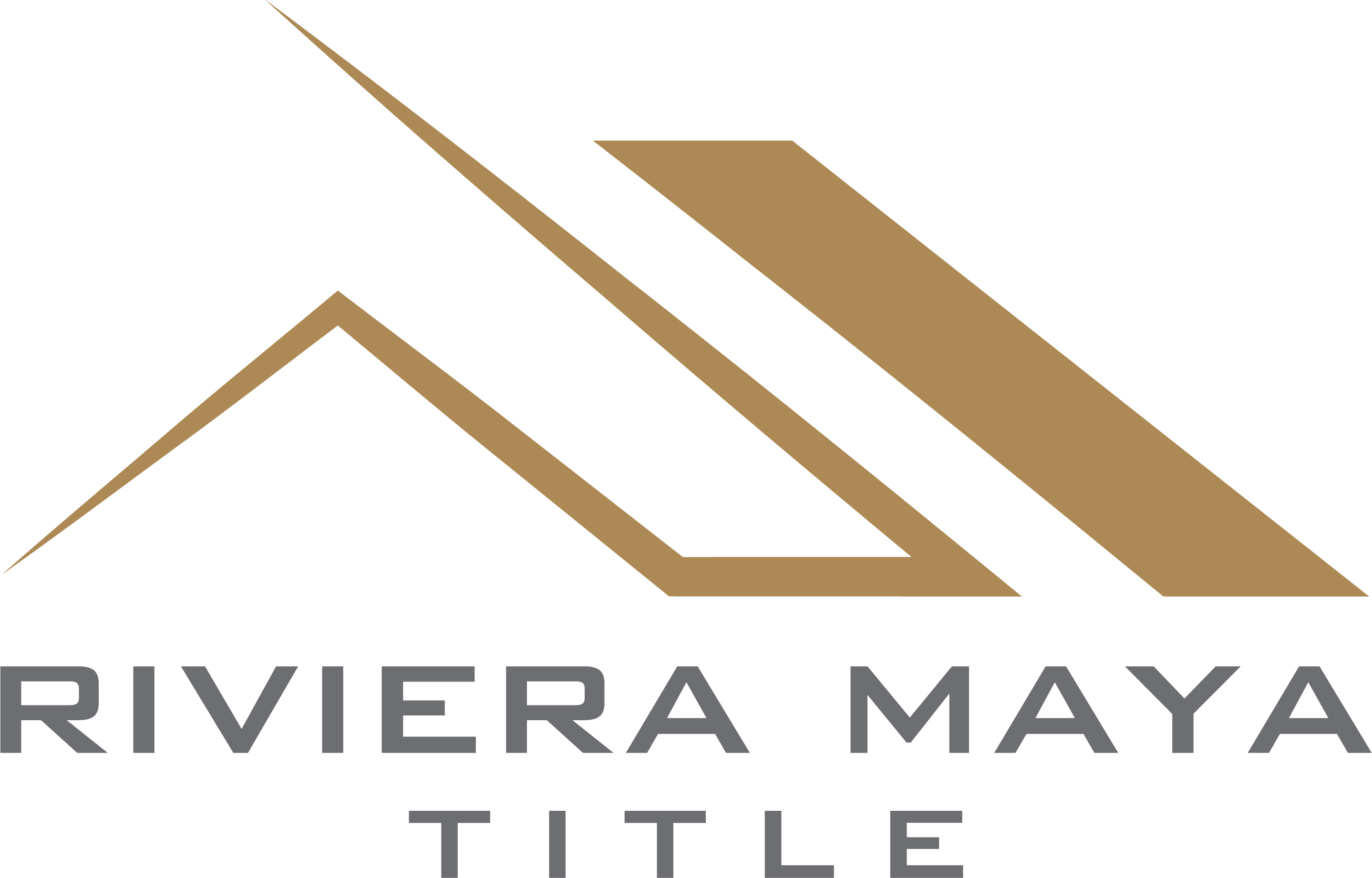Understanding the Fideicomiso: What Real Estate Buyers Need to Know in 2025

Executive Summary
For foreign buyers interested in purchasing property in Mexico—particularly in restricted zones such as coastal and border areas—understanding the fideicomiso is essential. This unique trust arrangement allows non-Mexican individuals and entities to acquire property securely and legally. In 2025, with the growing popularity of destinations like the Riviera Maya, the fideicomiso remains a critical mechanism for facilitating foreign ownership while protecting Mexico’s territorial integrity. This paper outlines the fundamentals of the fideicomiso, its legal framework, benefits, costs, recent law and tax changes, and key considerations for real estate transactions in 2025.
What Is a Fideicomiso?
A fideicomiso is a legal trust arrangement established through a Mexican bank that allows foreign buyers to acquire and control property in restricted zones. These zones, as defined by Mexican law, include:
- Coastal areas: Land within 50 kilometers (31 miles) of the coastline.
- Border areas: Land within 100 kilometers (62 miles) of an international border.
Under the fideicomiso arrangement:
- The foreign buyer (referred to as the beneficiary) retains all rights to use, rent, sell, or transfer the property.
- A Mexican bank acts as the trustee, holding the legal title to the property on behalf of the beneficiary.
- The trust is typically established for a 50-year term, renewable indefinitely.
Why Does the Fideicomiso Exist?
The fideicomiso was introduced as part of constitutional reforms to encourage foreign investment while preserving Mexican sovereignty. The Mexican Constitution prohibits foreign ownership of land in restricted zones to protect national security and territorial integrity. By allowing property to be held in trust, the fideicomiso provides a legal workaround that safeguards both foreign investment and national interests.
Recent Law and Tax Changes (2024-2025)
1. Adjustments to Capital Gains Tax Rates
In 2024, the Mexican government introduced a slight increase in capital gains tax rates for foreign property owners. While previously capped at 25% of the net gain, the new law adjusts the rate to 28% for properties sold after December 31, 2024. This change aims to align with international norms while ensuring fair taxation of non-resident investors.
Key Implications:
- Foreign sellers are encouraged to maintain detailed records of property improvements and expenses to reduce taxable gains.
- Buyers planning long-term investments should consider how these tax changes might affect future profitability.
2. Stricter Compliance for Fideicomiso Renewals
As of 2025, new compliance measures have been implemented to streamline fideicomiso renewals. Banks are now required to verify that all property taxes, utility bills, and trustee fees are fully paid before processing renewals. This policy ensures greater transparency and reduces potential legal complications.
Key Implications:
- Beneficiaries should maintain up-to-date documentation to avoid delays during the renewal process.
- Legal advisors recommend initiating renewal applications at least six months before expiration to address any compliance issues.
3. Updated Acquisition Tax Rules
In 2024, acquisition tax rates for real estate transactions were standardized across Quintana Roo, ranging from 2.5% to 4% depending on the property’s value. This change aims to eliminate discrepancies between municipalities and create a more consistent tax environment for buyers.
Key Implications:
- Buyers should calculate acquisition tax costs upfront to include them in their overall investment budget.
- Properties valued at over $1 million USD are subject to the higher end of the tax range, emphasizing the need for accurate financial planning.
4. New Environmental Zoning Laws
The Mexican government enacted stricter environmental zoning regulations in 2024 to protect ecologically sensitive areas. Properties located in coastal regions and near cenotes are now subject to additional permitting requirements.
Key Implications:
- Buyers interested in eco-tourism or waterfront properties should conduct thorough due diligence to ensure zoning compliance.
- Developers must account for longer timelines and higher costs associated with environmental impact assessments.
Key Benefits of a Fideicomiso
1. Full Ownership Rights
Foreign buyers enjoy the same rights as Mexican citizens to use, lease, sell, or inherit the property. These rights are protected under Mexican law, ensuring that the beneficiary retains complete control over the asset.
2. Security and Transparency
As the trustee, the Mexican bank is obligated to ensure that all legal requirements are met and that the trust operates transparently. This reduces risks associated with property fraud and ownership disputes.
3. Inheritance Planning
The fideicomiso allows beneficiaries to designate heirs directly in the trust agreement. Upon the primary beneficiary’s death, the property transfers seamlessly to the designated heirs, avoiding probate processes.
Costs Associated with a Fideicomiso
1. Setup Fees
Establishing a fideicomiso typically costs between $1,000 and $2,500 USD, depending on the bank and the complexity of the transaction.
2. Annual Maintenance Fees
The trustee bank charges an annual fee for administering the trust, ranging from $500 to $1,000 USD. This fee covers administrative tasks, legal compliance, and property oversight.
3. Transfer Fees
If the property is sold or transferred, additional fees may apply, including capital gains taxes and trust transfer costs. Buyers should consult legal and tax advisors to estimate these expenses.
Key Considerations for Buyers in 2025
1. Choose the Right Trustee Bank
Not all banks offer the same level of service or expertise in administering fideicomisos. Buyers should research and select a bank with a strong reputation and experience in real estate transactions.
2. Understand Tax Implications
Foreign buyers are subject to Mexican taxes on property transactions, including acquisition tax (typically 2.5%-4% of the property value) and capital gains tax upon resale. The fideicomiso does not exempt buyers from these obligations.
3. Verify Property Title and Zoning
Before establishing a fideicomiso, it is essential to conduct thorough due diligence. This includes verifying the property’s title, ensuring it is free of liens, and confirming zoning compliance for intended use.
4. Plan for Inheritance
Ensure that heirs are named in the fideicomiso agreement to simplify property transfer. This is especially important for buyers using the property as a long-term investment or family asset.
5. Renewals and Extensions
Although fideicomisos are established for 50 years, they are renewable indefinitely. Buyers should track the expiration date and initiate renewal processes well in advance to avoid complications.
Common Misconceptions About the Fideicomiso
1. The Bank Owns the Property
Some buyers mistakenly believe that the trustee bank owns their property. In reality, the bank holds the title in trust but has no ownership rights. The beneficiary retains full control over the property.
2. It’s Difficult to Transfer Ownership
The fideicomiso can be transferred to a new buyer or beneficiary with relative ease. However, this process requires coordination with the trustee bank and may incur transfer fees.
3. It’s Only for Expensive Properties
Fideicomisos are applicable to any property in restricted zones, regardless of price. This mechanism is not limited to luxury real estate.
Conclusion
The fideicomiso remains a vital tool for foreign buyers seeking to invest in Mexico’s restricted zones. In 2025, as the Riviera Maya and other coastal regions continue to attract international interest, understanding the fideicomiso is more important than ever. By providing security, flexibility, and full ownership rights, the fideicomiso enables foreigners to confidently participate in Mexico’s dynamic real estate market. Buyers are encouraged to work with experienced legal and real estate professionals to navigate the process smoothly and make informed decisions.
About the Author
This document was prepared by real estate professionals specializing in the Riviera Maya. With extensive experience in guiding foreign buyers through the fideicomiso process, our team is dedicated to ensuring seamless and secure property transactions. For personalized assistance, please contact us today.


